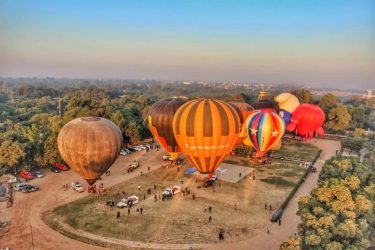
Madhya Pradesh, often referred to as the "Heart of India," is not only renowned for its rich cultural heritage and breathtaking landscapes but is also making remarkable strides in adopting sustainable tourism practices. As travelers become more conscious of their impact on the environment and local communities, Madhya Pradesh has emerged as a prime destination that prioritizes sustainable tourism initiatives. By preserving its natural and cultural treasures while embracing responsible tourism, Madhya Pradesh is leading the way in showcasing the harmony between tourism and sustainable development.
Preservation of Biodiversity:
Madhya Pradesh boasts an abundance of national parks and wildlife sanctuaries, including the renowned Kanha, Bandhavgarh, and Pench Tiger Reserves. These protected areas serve as crucial habitats for numerous endangered species, and sustainable tourism practices are vital for their preservation. The state government, in collaboration with local communities and conservation organizations, has implemented responsible wildlife tourism guidelines, ensuring minimal disturbance to the ecosystem. Strict regulations on visitor numbers, designated safari routes, and environmentally conscious accommodation options have been put in place to safeguard the delicate balance between tourism and wildlife conservation.
Empowering Local Communities:
Sustainable tourism is not just about protecting the environment; it also focuses on empowering local communities. Madhya Pradesh recognizes the significance of involving communities in decision-making processes and sharing the benefits of tourism with them. Community-based tourism initiatives have been introduced, allowing travelers to engage with local artisans, farmers, and indigenous tribes, thereby fostering cultural exchange and creating economic opportunities. By promoting homestays, handicrafts, and traditional cuisine, Madhya Pradesh ensures that tourism becomes a catalyst for sustainable development at the grassroots level.
Preservation of Heritage:
The state of Madhya Pradesh proudly showcases its architectural marvels, from the ancient temples of Khajuraho to the magnificent forts of Gwalior and Mandu. Recognizing the importance of preserving these heritage sites, sustainable tourism practices have been implemented to minimize their environmental impact. Conservation efforts, such as restoration projects and the use of eco-friendly materials, ensure the longevity of these historical treasures. Additionally, visitor management plans and responsible tourism campaigns educate travelers about the significance of respecting cultural heritage, promoting a deeper appreciation for the past and a commitment to its protection.
Promotion of Eco-tourism:
Madhya Pradesh's commitment to sustainability extends beyond protected areas and cultural sites. The state actively promotes eco-tourism, encouraging visitors to explore its lesser-known natural gems and eco-sensitive regions. The Pachmarhi Biosphere Reserve, the Satpura and Vindhya ranges, and numerous picturesque waterfalls offer opportunities for nature enthusiasts to experience the state's remarkable biodiversity while minimizing their ecological footprint. Eco-friendly accommodations and eco-tours that focus on environmental education and conservation further enhance the eco-tourism experience in Madhya Pradesh.
Conclusion:
Madhya Pradesh has emerged as a shining example of how sustainable tourism practices can coexist harmoniously with the preservation of natural and cultural heritage. Through initiatives that prioritize biodiversity conservation, community empowerment, heritage preservation, and the promotion of eco-tourism, the state showcases its commitment to sustainable development. As travelers increasingly seek meaningful and responsible experiences, Madhya Pradesh's embrace of sustainable tourism sets a positive precedent for other regions and reinforces the idea that tourism can be a force for good. By continuing to prioritize sustainability, Madhya Pradesh is not only preserving its unique treasures but also ensuring a brighter and more inclusive future for all.






.jpg)



